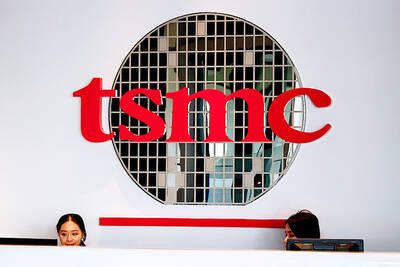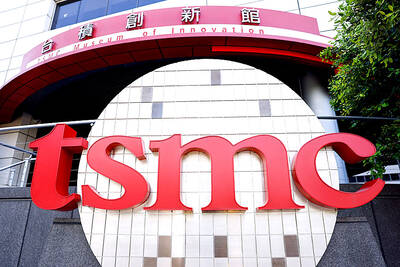Goldman Sachs Group Inc cut its forecast for computer motherboard shipments, saying demand "is falling off a cliff."
Shipments of motherboards, an indicator of personal-computer sales, probably dropped 4.2 percent this month from the previous month, Goldman Sachs analyst Henry King (
The reduction may signal fewer orders of semiconductors and related components from PC makers because of lower demand. Much of the slowdown has been caused by Microsoft Corp's delay in introducing its new Windows Vista operating system, King wrote.
Microsoft earlier this year pushed back the introduction of the software for consumers, already two years late, until January.
A decline in shipments "happened earlier and more significantly than we expected," King wrote.
The Philadelphia Semiconductor Index dropped as much as 2.5 percent following the report by Goldman's Asia Pacific technology team, with National Semiconductor Corp, Intel Corp and Micron Technology Inc leading the decline. The index of 19 chip-related stocks slid as much as 11.48 points to 449.79.
King forecast motherboard shipments for the quarter will gain 8.8 percent, down from an earlier prediction for 10.8 percent growth. This month's decline compares with average month-over-month growth of 12.7 percent between 2001 and last year, he said.
The slide may also leave motherboard makers with oversupply, King said, prompting a possible price war. Shipments are tracked out of Taiwan, where computer makers including Dell Inc and Hewlett-Packard order their parts and have machines assembled.
"There's been some concern over inventory for a couple of quarters but it's coming to a head right now," said Greg Barlage, who helps oversee about US$35 billion at Baring Asset Management in Boston.
The delay to Microsoft's Vista may cut US$4 billion from PC sales this year, according to Gartner Inc.

Chizuko Kimura has become the first female sushi chef in the world to win a Michelin star, fulfilling a promise she made to her dying husband to continue his legacy. The 54-year-old Japanese chef regained the Michelin star her late husband, Shunei Kimura, won three years ago for their Sushi Shunei restaurant in Paris. For Shunei Kimura, the star was a dream come true. However, the joy was short-lived. He died from cancer just three months later in June 2022. He was 65. The following year, the restaurant in the heart of Montmartre lost its star rating. Chizuko Kimura insisted that the new star is still down

While China’s leaders use their economic and political might to fight US President Donald Trump’s trade war “to the end,” its army of social media soldiers are embarking on a more humorous campaign online. Trump’s tariff blitz has seen Washington and Beijing impose eye-watering duties on imports from the other, fanning a standoff between the economic superpowers that has sparked global recession fears and sent markets into a tailspin. Trump says his policy is a response to years of being “ripped off” by other countries and aims to bring manufacturing to the US, forcing companies to employ US workers. However, China’s online warriors

Taiwan Semiconductor Manufacturing Co (TSMC, 台積電) listed the challenges of ensuring export control compliance by its customers, months after the company’s artificial intelligence (AI) silicon was found to have flowed to US-sanctioned Huawei Technologies Co (華為) via intermediaries. “TSMC’s role in the semiconductor supply chain inherently limits its visibility and information available to it regarding the downstream use or user of final products that incorporate semiconductors manufactured by it,” the Hsinchu-based company said in its latest annual report released on Friday. The world’s largest contract chipmaker said the constraint impedes its ability to prevent unintended end-uses of its semiconductors, as well

Taiwan Semiconductor Manufacturing Co (TSMC, 台積電) expects steady growth this year despite global economic uncertainty due to continued momentum from tech trends such as 5G, artificial intelligence (AI) and high-performance computing (HPC) applications. In the company’s annual shareholders’ report released on Thursday, TSMC chairman and CEO C.C. Wei (魏哲家) said the company is well-positioned to meet market demand with its differentiated technology platforms. The company’s 2-nanometer process is on track for volume production in the second half of this year, while its next-generation nanosheet-based A16 process, aimed at HPC applications, is scheduled for mass production late next year, Wei said. Advanced technologies —